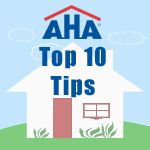Escrow Refund

An escrow account for each borrower is held by mortgage lenders for the purpose of making periodic payments for expenses such as property taxes, hazard insurance, and private mortgage insurance (PMI). You pay into this account as part of your monthly mortgage bill and the funds accumulate until each specific bill is paid off by the lender. In the Western U.S., these are know as "impound accounts." Although escrow accounts serve an important purpose, you need to know how these accounts work and why they are so lucrative for mortgage lenders. Only 14 states require lenders to pay homeowners interest on escrow balances, and those that do pay only modest interest rates. In reality, banks and mortgage services make terrific profits from escrow funds.
In 1990, investigations into the banking industry revealed that banks were overcharging consumers as much as two to four billion dollars for these accounts. A major home-loan servicer settled a lawsuit in 1992 by agreeing to pay up to $250 million in refunds to its customers. Numerous class action suits were filed and settled against mortgage services. More recent concerns about the fairness and accuracy of escrow charges led the U.S. Housing and Urban Development Department (HUD) to revise the rules governing escrow accounts.
How the New Rules Help You
Overcharges result when lending institutions insist that you deposit more funds than are actually required to meet expenses as they come due. In the past, lenders have used an outmoded method called single-item accounting to justify excess accumulation of funds. Another technique used to "pad" escrow accounts was to require a financial "cushion" of two months of expenses, in case of property tax rate increases.
All that has now changed under the rules established by HUD in 1995. These rules were developed following Congressional hearings which included testimony by AHA President Richard Roll. Under the new rules, lenders can no longer use the single-item method that allowed them to inflate costs. In addition, lenders must perform an accurate analysis of escrow charges and provide a detailed, annual disclosure statement to the borrower.
Here's the most important rule for you to remember. No lender may require a cushion in your escrow account that exceeds one-sixth (two months) of the total taxes, insurance premiums or other anticipated expenses for the upcoming year. In addition, if your mortgage contract has language that limits cushions to less than two months, or no cushion at all, your lender is required to honor that provision. Under the new system, your lender cannot charge each month more than one-twelfth (one month) of the combined escrow expenses for the upcoming year.
How to Check Your Escrow Account
How do you know if you're being overcharged? Some of the warning signals will sound familiar: the servicing of your mortgage changes hands to another company; or your monthly payments are being adjusted more frequently than your loan contract calls for. Here's a dead giveaway: your lender requests an increase to cover taxes or private mortgage insurance (PMI), but your taxes and PMI have not increased.
Even without these telltale signals, homeowners should check their escrow accounts. Recovering overcharges may be easier than you think. Here's what to do:
- Assemble your records. Collect your mortgage document, the monthly escrow payments, the current escrow balance, and the mortgage servicer's payments of property taxes, hazard insurance, PMI, etc. If you don't have all of these records, request them form your lender. As noted in the previous section on mortgage overcharges, they are required by law to respond.
- Separate the accounts. Make sure you identify the various separate payment accounts by examining your original settlement statement, loan account payment history, or recent escrow analysis from your lender. Check your mortgage payment coupon book or annual escrow disclosure statement for this info.
- Verify the numbers. Check the amounts and due dates of your accounts by calling the appropriate agency; local or state government for taxes; insurance agent or company for hazard insurance; and insurance company for the status of your private mortgage insurance and due dates. Your settlement document should have the name of your PMI provider.
- Fill in the escrow worksheet
- Request your refund if one is due. Once you have detected an overcharge, make a copy of your escrow worksheet and send it to your lender with a request for a refund. A sample letter is provided.
For more information, request a copy of The Homeowner's Escrow Refund Guide from AHA. It's free to members and only $9.95 for non-members. Call (800) 470-2AHA (470-2242)
Remember, you may wish to consider hiring a professional mortgage analysis firm to review your escrow account for overcharges as well as other aspects of your mortgage. AHA members are entitled to special rates through agreement with the Mortgage Monitor audit service. Call Mortgage Monitor toll-free at (800) AUDIT-USA (283-4887) and provide your AHA membership number.
|

